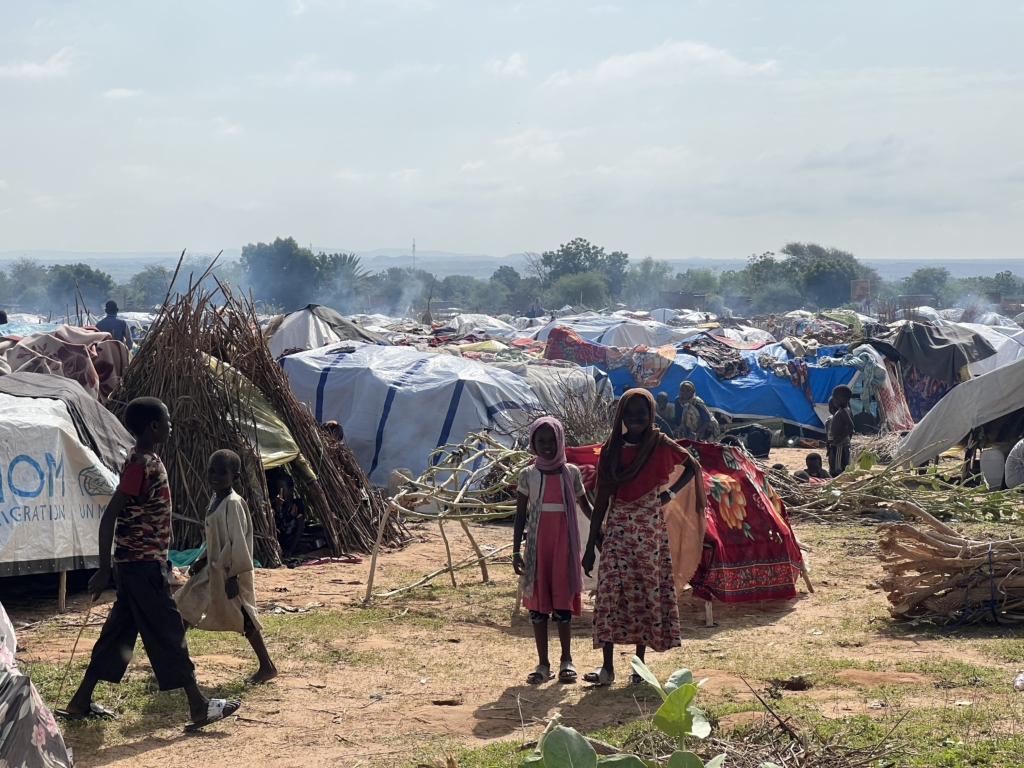Khartoum, 6(Darfur 24) Linda Thomas-Greenfield, the US envoy to the United Nations, arrived in Chad on Wednesday to meet Sudanese refugees who fled ethnic and sexual violence in Darfur, something she said was “reminiscent” of atrocities committed 20 years ago that Washington described as genocide.
She is also scheduled to visit Chad’s border with Darfur in western Sudan to highlight the worsening conflict and the increasingly severe humanitarian crisis.
The war broke out in Sudan on April 15, four years after former President Omar al-Bashir was overthrown in a popular uprising. Tensions escalated between the army and the Rapid Support Forces, after they participated in a coup in 2021, turning into fighting due to a dispute over a transition plan to civilian rule.
“We have certainly reached a level of serious atrocities that strongly reminds us of what we witnessed in 2004 and led us to describe it as genocide,” Thomas-Greenfield said before arriving in Chad.
She continued, saying, “We hear about women being subjected to brutal gang rape repeatedly, villages being raided, and there are pictures showing mass graves.” The evidence is there.”
In the early 2000s, the United Nations estimated that about 300,000 were killed in Darfur when the Janjaweed militia, from which the Rapid Support Forces were later formed, helped the army crush a rebellion by mostly non-Arab groups. There are Sudanese leaders wanted by the International Criminal Court on charges of committing genocide and crimes against humanity.
“Once again, Darfur is sliding into an abyss without mercy or hope,” Martin Griffiths, UN Under-Secretary-General for Humanitarian Affairs and Emergency Relief Coordinator, said in a statement. “Civilians are trapped, targeted, and subjected to rape and murder.” “This is illegal and appalling.”
Thomas-Greenfield visited Chad’s border with Darfur in 2004 when she was a senior official in the US State Department, the same year that Washington described the violence there as genocide.
She said, “I went before the declaration of genocide, but I saw all the evidence that it was actually happening… I witnessed this before when I visited refugee camps in Goma (in the Democratic Republic of the Congo) after Rwanda and saw the tormented and horrified looks on people’s faces.”
The United Nations says about 380,000 refugees, most of them women and children, have fled to Chad since the war in Sudan began in April. Hundreds of thousands also fled to the Central African Republic, Egypt, Ethiopia and South Sudan.
The United Nations High Commissioner for Refugees appealed to raise one billion dollars to provide aid and protection to more than 1.8 million people expected to flee Sudan this year. There are approximately 7.1 million displaced people inside Sudan, according to the International Organization for Migration.
Griffiths said those who managed to flee violence inside Sudan now face starvation.
He continued, saying, “More than 60 percent of the people in West Darfur suffer from food insecurity, and this is the case for more than half of the population of East and South Darfur… We are in a race against time.”
In the past few weeks, the United Nations was able to deliver aid to West Darfur from Chad and has trucks loaded with aid ready to reach other areas of Darfur, but it said that “the ongoing clashes are relentless” preventing them from reaching those in need.
“People in Darfur are stuck in a situation of near complete misery,” Griffiths said. Our urgent message: Stop the fighting and let us pass.”
The United Nations says that half of Sudan’s population of 49 million people need aid and has launched an appeal to collect $2.6 billion, but so far it has only been able to collect 26 percent of this amount. The United States is the largest donor, followed by the European Commission, Germany and Canada.
UN Secretary-General Antonio Guterres told the UN Security Council last week in a report seen by Reuters that the fighting in Sudan had caused a “humanitarian catastrophe.”
“The growing ethnic mobilization and the increase in ethnically motivated attacks may cause the outbreak of a comprehensive civil war, which could have a more devastating impact on the Sudanese people, the region and beyond,” Guterres wrote.

